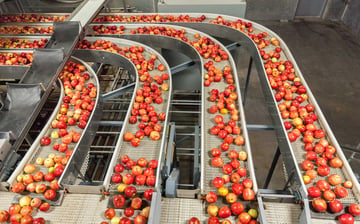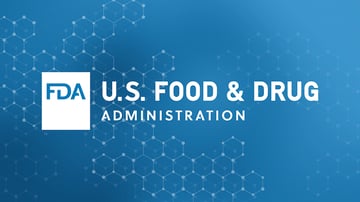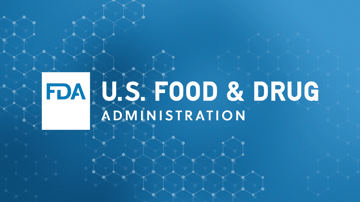FoodLogiQ joined over 400 food safety professionals and practitioners earlier this week at this year’s virtual SQF Unites conference. Spanning October 26th through the 28th, SQF Unites recently pivoted to a virtual event format, which allowed professionals across the industry to participate in an engaging, creative and informative event. Attendees ranged from food manufacturers, producers and growers, to SQF and substitute practitioners, auditors, trainers, and consultants. Additionally, professionals across the food retail and wholesale space, as well as solution providers, participated in the event.
This year’s conference featured a wide variety of speakers, innovative sessions and creative networking opportunities, including daily informal ice breakers and coffee pop-ins, educational sessions with live Q&A, thought leadership presentations, an “Ask the Expert” lounge for ongoing knowledge sharing, and community social engagement opportunities. Motivational speaker and author Kevin Brown also provided a captivating opening keynote on “The Hero Effect,” highlighting how heroes across the food industry have adapted, evolved and excelled during the challenges that have plagued the world over the past year and a half. The dynamic event offered a balanced collection of industry updates, including regulatory developments and educational presentations, as well as sessions geared specifically to SQF certifications and SQF Code Edition 9, implemented earlier this year.
Several key themes stood out during the 2021 SQF Unites Conference, among them the importance of implementing and maintaining a healthy food safety culture on an organizational basis, in addition to regulatory changes and advancements. FoodLogiQ shares a list of key takeaways and lessons learned during SQF Unites.
Cultivating a Healthy Food Safety Culture is Essential
Establishing a clear food safety culture that is commonly acknowledged and understood, as well as proactively maintained is of utmost importance on an organizational level. A strong, consistent food safety culture is the foundation for a vigorous, mature food safety program, and acts as a unifying element that employees across departments, as well as the business as a whole, can get behind. SQF highlighted the importance of crafting and upholding a robust food safety culture, and discussed its transition from serving as an inherent part of Management Commitment in Edition 8.1 to specific requirements in Edition 9 in sessions such as “Quest for a Healthy Food Safety Culture: Expectations and Foundations.”
Food Allergens Continue to Pose a Significant Risk Across Industry Verticals
Food allergens are chemical hazards that continue to generate high health, regulatory and business risks across the food industry. Several SQF Unites sessions centered on the threat food allergens pose, as well as practices, strategies and tools for tackling the challenges they present. Established programs and protocols, such as Hazard Analysis and Risk-Based Preventive Controls (HARPC), as well as clear and consistent labeling and packaging tactics are critical for preventing undeclared allergen recalls and protecting consumers. This is especially important considering that food regulatory agencies have introduced new labeling rules like the FASTER Act, which establishes sesame as the ninth major allergen in the United States.
The Food Industry Should be Prepared for Upcoming Regulatory Changes
With much attention placed on traceability, interoperability and accurate, reliable data capture, stakeholders across the food industry should be ready to comply with future regulations, and should begin preparing now. SQF Unites featured several opportunities to learn and discuss regulatory developments including the FDA’s proposed FSMA 204 traceability rule, as discussed in sessions like “Are You Ready for the FDA’s Traceability Mandate?” In addition, the conference included discussions on the FDA’s emphasis on routinely performed audits and heightened auditing practices that extend beyond purely outbreak-driven response.
The Future is Now and Technology is Here to Help
The event offered much discussion around new, emerging technologies and tools, and how they can help address modern challenges and obstacles. In the age of COVID-19, The New Era of Smarter Food Safety and a shifting marketplace, it’s important to embrace technological innovation to streamline and expand existing processes, maintain brand and regulatory standards, and meet the changing market’s needs. This is in addition to capturing, leveraging and applying precise data from trusted points across the supply chain. Sessions such as “The Future is Now – Leveraging Technology and Data Analytics Innovation to Enhance Food Safety Decision-Making” emphasized the importance of standardized data collection, risk-based programs and transparency within the realm of food safety and the arrival of the “future.”
Where will FoodLogiQ be Next?
This year’s SQF Unites event was an especially fascinating conference that provided industry and certification body updates, unique networking opportunities and riveting discussions, alike. FoodLogiQ thoroughly enjoyed attending the virtual conference, as well as participating in dynamic interactions surrounding the future of tech-enabled auditing, certification and regulatory standards across the industry. Additionally, FoodLogiQ looks forward to participating in future industry events, including the upcoming IFMA Presidents Conference, taking place in person November 7-9 in Scottsdale, Arizona. Be sure to let us know if you plan on attending, and mark your calendars for FoodLogiQ’s presentation, Preparing for the Proposal: Navigating FSMA 204 Today and Tomorrow, taking place November 7th at 2:30 pm local time.
Tag(s):
Food Safety
Other posts you might be interested in
View All Posts
Trustwell News
6 min read
| December 17, 2021
FoodLogiQ Connect Surpassing 100 Million Critical Tracking Events
Read More
Food Safety
10 min read
| December 6, 2021
FoodLogiQ Comments: New Era of Smarter Food Safety Summit on E-Commerce
Read More
Traceability
10 min read
| February 25, 2021

